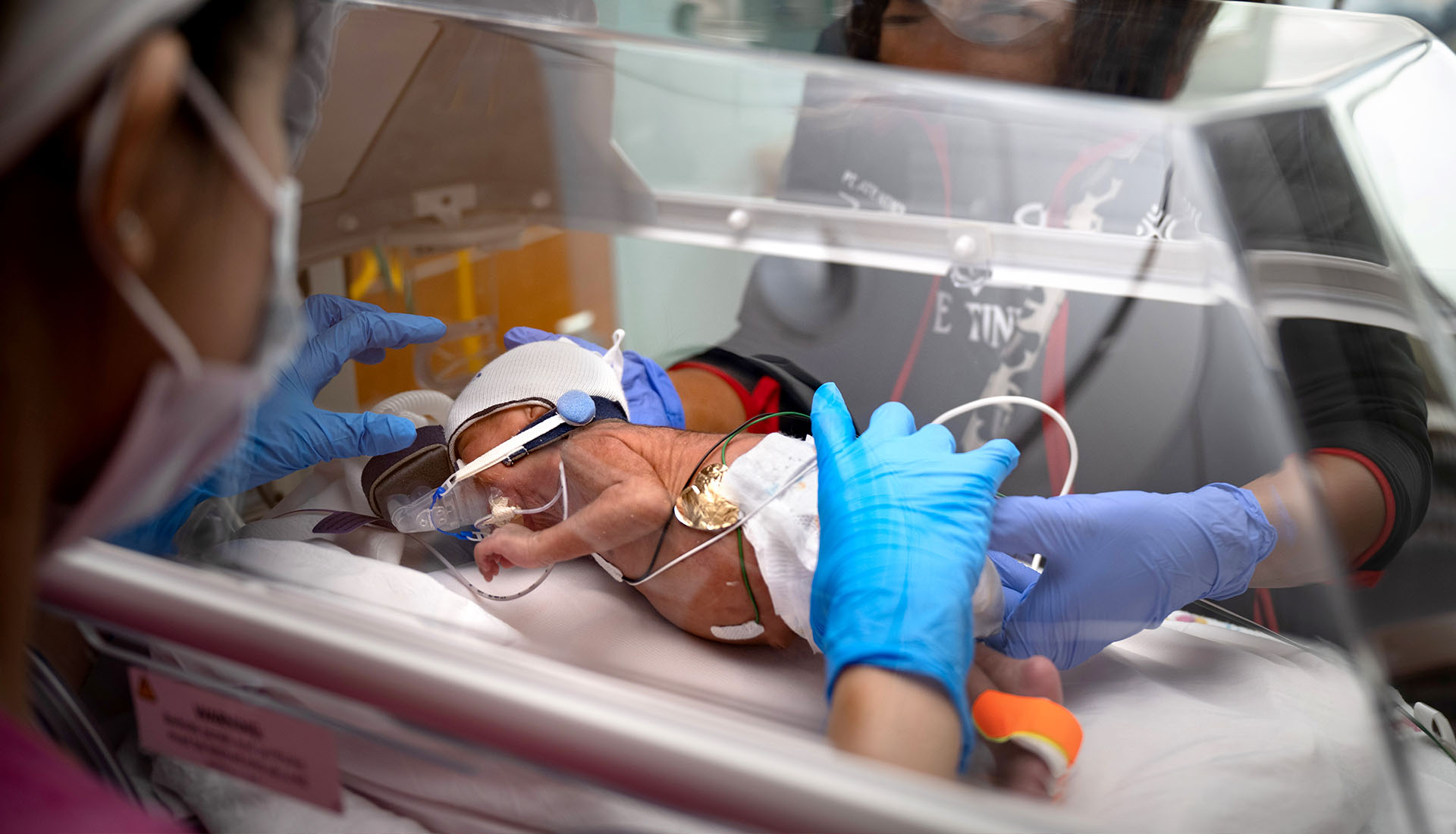

As the tiny baby snuggles against her, the mother’s strength seems to flow into the infant.
Clinical research led by Kristina Reber, MD, confirmed the value of physical contact between parents and newborns. Now, increasing family-centered care is one of Dr. Reber’s goals as Division Head and Chief of Newborn Medicine in the Department of Pediatrics at Baylor College of Medicine and Texas Children’s Hospital.
“We’re looking at opportunities to make sure that families feel supported and finding innovative ways that we can keep mom and baby together,” said Dr. Reber, who assumed her duties in July 2021.
“I’m always encouraging our parents to hold their babies and have that skin-to-skin contact. There are so many good things with what we call kangaroo care, not to mention that it’s satisfying to the parents,” she said.
Kangaroo care improves the outcomes of babies in such ways as:
“We’re constantly looking to be sure that we’re doing the best for our patients,” Dr. Reber said.
More than 1,800 infants are cared for each year in the Texas Children’s Neonatal Intensive Care Units (NICUs), making this one of the largest and most experienced NICUs in the country. Texas Children’s serves as a major referral center for some of the sickest newborn infants with complex conditions.
The division of Newborn Medicine has more than 100 full-time faculty and houses one of the largest neonatal-perinatal fellowship programs in the United States.
“This is an incredible group of doctors, nurses, staff and trainees. There are opportunities to build on the already prestigious and well-established program,” Dr. Reber said.
Her goals for Newborn Medicine include:
Dr. Reber’s commitment to neonatology solidified during medical school, when she realized how much she enjoyed taking care of critically ill babies. Dr. Reber recognized quickly the rewards in being able to take care of critically ill newborns and potentially help them to survive to have a long, quality of life with their families.
“The science and physiology of taking care of a premature baby is fascinating, and we still have a lot to learn,” she said. “I know how precious babies are to their parents. It’s an absolute privilege to take care of a family’s most precious commodity.”
After receiving her medical degree at The Ohio State University College of Medicine, Dr. Reber completed her pediatrics internship and residency and a fellowship in neonatal-perinatal medicine at Columbus Children’s Hospital, now named Nationwide Children’s Hospital.
Before joining Baylor and Texas Children’s, she was Senior Vice Chair of the Department of Pediatrics at Ohio State. She was Medical Director for the Newborn Service/Neonatal Intensive Care Unit at the Ohio State Wexner Medical Center and Associate Division Chief of the Division of Neonatology at Nationwide.
 Kristina Reber, MD, Chief of Newborn Medicine, encourages physical contact between parents and newborns as part of the babies’ health care.
Kristina Reber, MD, Chief of Newborn Medicine, encourages physical contact between parents and newborns as part of the babies’ health care.
At Nationwide, she led core teams in developing clinical guidelines for nursing care, ventilation, feeding and other aspects of care for specific types of cases.
“We know that the same interventions are not appropriate for every baby in the NICU. Taking care of very low birth weight babies or early gestational age babies is very different than taking care of a full-term baby with a complication. We have to tailor the care toward the gestational age and the specific problem of the baby,” Dr. Reber said.
“We had good results, not only with small babies, but also with other types of critically ill babies, such as those with surgical problems,” she said.
Aside from taking care of patients, the most rewarding part of Dr. Reber’s career is helping other neonatologists succeed in their careers. A part of her effort is serving as a member of the executive committee for Women in Neonatology, a special interest group of the American Academy of Pediatrics.
“When I have a fellow who is successful in his or her career, that’s very rewarding. I have had some trainees tell me that I helped inspire them to become neonatologists. That is really fulfilling to me and why I especially appreciate being in an academic center with an opportunity to work with trainees,” she said.
Together with the talented team, Dr. Reber looks forward to not only solidifying the outstanding clinical, research and educational programs of Newborn Medicine at Baylor and Texas Children’s, but also growing the national and international recognition that this incredible program deserves.